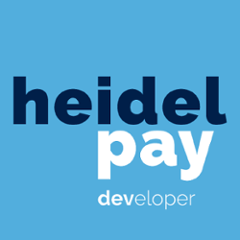IDE
APM - all.cloud
com.cognifide.apm.crx : apm-all.cloudAPM (AEM Permission Management) - AEM All-In-One Package (Cloud)
Последняя версия: 5.6.13
Дата:Последняя версия: 1.0.1-v20070601-1400
Дата:WSO2 Carbon Extension - Github Pom
org.wso2.carbon.extension.identity.authenticator : org.wso2.carbon.extension.identity.authenticator.githubWSO2 is an open source application development software company focused on providing service-oriented architecture solutions for professional developers.
Последняя версия: 1.1.9
Дата:quarkus-zoe-ide-services-deployment
io.github.jocelynmutso : quarkus-zoe-ide-services-deploymentZoe CMS system for Markdown-based content
Последняя версия: 1.010
Дата:Последняя версия: 5.17.218.1
Дата:browser - modules - jbrowserdriver - providers
io.github.qsy7.java.modules.browser.modules.jbrowserdriver : providersbrowser parent POM
Последняя версия: 0.1.0
Дата:WebSocket SPI Providers
org.glassfish.tyrus : websocket-spi-providersWebSocket API and Implementation
Последняя версия: 1.0-b06
Дата:Последняя версия: 1.0.0.M18
Дата:Thucydides Easyb Plugin
net.thucydides.easyb : thucydides-easyb-pluginAn Acceptance Testing framework for web applications based on WebDriver, and integrating with JUnit and net.thucydides.easyb.
Последняя версия: 0.9.268
Дата:canvas-archetype
org.apidesign.canvas : canvas-archetypeJava.net - The Source for Java Technology Collaboration
Последняя версия: 0.5.2
Дата:Archetype - musicbot-provider
com.github.bjoernpetersen : musicbot-providerArchetype for JMusicBot provider plugins
Последняя версия: 0.10.1
Дата:Identity4J Zendesk
com.nervepoint : identity4j-zendeskA suite of Java Identity and Authentication Connectors.
Последняя версия: 1.2.2
Дата:Последняя версия: 2.0.8
Дата:jUDDI User Guide -(en-US)
org.apache.juddi : userguidejUDDI (pronounced "Judy") is an open source Java implementation of the Universal Description, Discovery, and Integration (UDDI) specification for Web Services.
Последняя версия: 3.1.5
Дата:serialization - modules - jackson-databind - providers
io.github.qsy7.java.modules.serialization.modules.jackson-databind : providersserialization
Последняя версия: 0.1.0
Дата:Последняя версия: 1.9.0
Дата:Последняя версия: 2.0.3
Дата:WSO2 Carbon Identity Management - Test Coverage
org.wso2.carbon.identity.mgt : carbon-identity-mgt-coverage-reportCoverage reports for Carbon Identity Management
Последняя версия: 0.1.41
Дата:ScalaCollider-Trace
at.iem : scalacollider-trace_2.11A library for debugging ScalaCollider UGen graphs by tracing their values
Последняя версия: 0.3.0
Дата:Sling IDE Tools: Eclipse Core
org.apache.sling.ide : org.apache.sling.ide.eclipse-coreThe Apache Software Foundation provides support for the Apache community of open-source software projects. The Apache projects are characterized by a collaborative, consensus based development process, an open and pragmatic software license, and a desire to create high quality software that leads the way in its field. We consider ourselves not simply a group of projects sharing a server, but rather a community of developers and users.
Последняя версия: 1.0.0
Дата:Compose Slideshow
com.zachklipp.compose-richtext : slideshowA library for creating slideshows using Compose.
Последняя версия: 0.3.0
Дата:OpenDJ RPM Standard Package
org.openidentityplatform.opendj : opendj-rpm-standardThis module generates an OpenDJ standard edition rpm package.
Последняя версия: 4.5.0
Дата:Последняя версия: 2.7.0
Дата:LinkedDataStore testing kit persistence-provider
no.ssb.lds : linked-data-store-persistence-provider-testПоследняя версия: 0.3
Дата:deepsampler-provider-spring
de.ppi : deepsampler-provider-springThis module provides the possibility to use DeepSampler with spring based on their aop-framework.
Последняя версия: 2.1.0
Дата:Последняя версия: 1.13.10
Дата:WSO2 Carbon - identity Inwebo OTP Feature
org.wso2.carbon.extension.identity.authenticator : org.wso2.carbon.extension.identity.authenticator.inwebo.featureThis feature contains extension feature for Inwebo
Последняя версия: 1.0.1
Дата:WSO2 Carbon - identity Office365 Feature
org.wso2.carbon.extension.identity.authenticator.outbound.office365 : org.wso2.carbon.extension.identity.authenticator.office365.featureThis feature contains extension feature for Office365
Последняя версия: 2.1.0
Дата:WSO2 Carbon SAML SSO Cloud
org.wso2.carbon.identity.inbound.auth.saml.cloud : identity-inbound-auth-saml-cloudПоследняя версия: 1.0.7
Дата:spring-amqp-utils
com.avides.spring : spring-amqp-utilsProvides some utility-methods to simplify the use of Spring Amqp
Последняя версия: 1.0.1.RELEASE
Дата:Последняя версия: 1.0.0
Дата:Ant Chain API SDK
cn.com.antcloud.api : antcloud-api-provider-nftxAnt Chain API SDK For Java Copyright (c) 2020-present antgroup.com, https://www.antgroup.com
Последняя версия: 1.4.1
Дата:mtons-spider
com.mtons : mtons-spidermtons spider is a web spider, that aims to be very flexible, easy to extend, and portable
Последняя версия: 1.5.0
Дата:Providence CLI : Packaging
net.morimekta.providence : providence-packageProvidence tools. Contains the providence compiler (pvdc), a providence data converter (pvd), and an RPC tool (pvdrpc).
Последняя версия: 0.2.0
Дата:org.openide.dialogs
com.github.veithen.visualwas.thirdparty : org.openide.dialogsOpen Source implementation of the WebSphere SOAP JMX protocol
Последняя версия: 4.0.0
Дата:trident-ml
com.github.pmerienne : trident-mlTrident-ML : A realtime online machine learning library
Последняя версия: 0.0.2
Дата:Последняя версия: 0.5.1
Дата:Последняя версия: 5.0.1
Дата:WSO2 Identity Tools
org.wso2.carbon.identity.tools : identity-toolsUnified Identity tools of WSO2 IS
Последняя версия: 1.0.5
Дата:WSO2 Carbon Extension - Office365 Pom
org.wso2.carbon.extension.identity.authenticator.outbound.office365 : org.wso2.carbon.extension.identity.authenticator.office365WSO2 is an open source application development software company focused on providing service-oriented architecture solutions for professional developers.
Последняя версия: 2.1.0
Дата:Последняя версия: 0.6.1
Дата:lein
au.com.dius.pact.provider : lein# Leiningen plugin to verify a provider Leiningen plugin for verifying pacts against a provider. The plugin provides a `pact-verify` task which will verify all configured pacts against your provider. ## To Use It ### 1. Add the plugin to your project plugins, preferably in it's own profile. ```clojure :profiles { :pact { :plugins [[au.com.dius.pact.provider/lein "4.1.20" :exclusions [commons-logging]]] :dependencies [[ch.qos.logback/logback-core "1.2.3"] [ch.qos.logback/logback-classic "1.2.3"]] }} ``` ### 2. Define the pacts between your consumers and providers You define all the providers and consumers within the `:pact` configuration element of your project. ```clojure :pact { :service-providers { ; You can define as many as you need, but each must have a unique name :provider1 { ; All the provider properties are optional, and have sensible defaults (shown below) :protocol "http" :host "localhost" :port 8080 :path "/" :has-pact-with { ; Again, you can define as many consumers for each provider as you need, but each must have a unique name :consumer1 { ; pact file can be either a path or an URL :pact-file "path/to/provider1-consumer1-pact.json" } } } } } ``` ### 3. Execute `lein with-profile pact pact-verify` You will have to have your provider running for this to pass. ## Enabling insecure SSL For providers that are running on SSL with self-signed certificates, you need to enable insecure SSL mode by setting `:insecure true` on the provider. ```clojure :pact { :service-providers { :provider1 { :protocol "https" :host "localhost" :port 8443 :insecure true :has-pact-with { :consumer1 { :pact-file "path/to/provider1-consumer1-pact.json" } } } } } ``` ## Specifying a custom trust store For environments that are running their own certificate chains: ```clojure :pact { :service-providers { :provider1 { :protocol "https" :host "localhost" :port 8443 :trust-store "relative/path/to/trustStore.jks" :trust-store-password "changeme" :has-pact-with { :consumer1 { :pact-file "path/to/provider1-consumer1-pact.json" } } } } } ``` `:trust-store` is relative to the current working (build) directory. `:trust-store-password` defaults to `changeit`. NOTE: The hostname will still be verified against the certificate. ## Modifying the requests before they are sent Sometimes you may need to add things to the requests that can't be persisted in a pact file. Examples of these would be authentication tokens, which have a small life span. The Leiningen plugin provides a request filter that can be set to an anonymous function on the provider that will be called before the request is made. This function will receive the HttpRequest object as a parameter. ```clojure :pact { :service-providers { :provider1 { ; function that adds an Authorization header to each request :request-filter #(.addHeader % "Authorization" "oauth-token eyJhbGciOiJSUzI1NiIsIm...") :has-pact-with { :consumer1 { :pact-file "path/to/provider1-consumer1-pact.json" } } } } } ``` __*Important Note:*__ You should only use this feature for things that can not be persisted in the pact file. By modifying the request, you are potentially modifying the contract from the consumer tests! ## Modifying the HTTP Client Used The default HTTP client is used for all requests to providers (created with a call to `HttpClients.createDefault()`). This can be changed by specifying a function assigned to `:create-client` on the provider that returns a `CloseableHttpClient`. The function will receive the provider info as a parameter. ## Turning off URL decoding of the paths in the pact file By default the paths loaded from the pact file will be decoded before the request is sent to the provider. To turn this behaviour off, set the system property `pact.verifier.disableUrlPathDecoding` to `true`. __*Important Note:*__ If you turn off the url path decoding, you need to ensure that the paths in the pact files are correctly encoded. The verifier will not be able to make a request with an invalid encoded path. ## Plugin Properties The following plugin options can be specified on the command line: |Property|Description| |--------|-----------| |:pact.showStacktrace|This turns on stacktrace printing for each request. It can help with diagnosing network errors| |:pact.showFullDiff|This turns on displaying the full diff of the expected versus actual bodies| |:pact.filter.consumers|Comma seperated list of consumer names to verify| |:pact.filter.description|Only verify interactions whose description match the provided regular expression| |:pact.filter.providerState|Only verify interactions whose provider state match the provided regular expression. An empty string matches interactions that have no state| |:pact.verifier.publishResults|Publishing of verification results will be skipped unless this property is set to 'true'| Example, to run verification only for a particular consumer: ``` $ lein with-profile pact pact-verify :pact.filter.consumers=:consumer2 ``` ## Provider States For each provider you can specify a state change URL to use to switch the state of the provider. This URL will receive the `providerState` description from the pact file before each interaction via a POST. The `:state-change-uses-body` controls if the state is passed in the request body or as a query parameter. These values can be set at the provider level, or for a specific consumer. Consumer values take precedent if both are given. ```clojure :pact { :service-providers { :provider1 { :state-change-url "http://localhost:8080/tasks/pactStateChange" :state-change-uses-body false ; defaults to true :has-pact-with { :consumer1 { :pact-file "path/to/provider1-consumer1-pact.json" } } } } } ``` If the `:state-change-uses-body` is not specified, or is set to true, then the provider state description will be sent as JSON in the body of the request. If it is set to false, it will passed as a query parameter. As for normal requests (see Modifying the requests before they are sent), a state change request can be modified before it is sent. Set `:state-change-request-filter` to an anonymous function on the provider that will be called before the request is made. #### Returning values that can be injected You can have values from the provider state callbacks be injected into most places (paths, query parameters, headers, bodies, etc.). This works by using the V3 spec generators with provider state callbacks that return values. One example of where this would be useful is API calls that require an ID which would be auto-generated by the database on the provider side, so there is no way to know what the ID would be beforehand. There are methods on the consumer DSLs that can provider an expression that contains variables (like '/api/user/au.com.dius.pact.provider:lein:jar:4.4.0-beta.2' for the path). The provider state callback can then return a map for values, and the `id` attribute from the map will be expanded in the expression. For URL callbacks, the values need to be returned as JSON in the response body. ## Filtering the interactions that are verified You can filter the interactions that are run using three properties: `:pact.filter.consumers`, `:pact.filter.description` and `:pact.filter.providerState`. Adding `:pact.filter.consumers=:consumer1,:consumer2` to the command line will only run the pact files for those consumers (consumer1 and consumer2). Adding `:pact.filter.description=a request for payment.*` will only run those interactions whose descriptions start with 'a request for payment'. `:pact.filter.providerState=.*payment` will match any interaction that has a provider state that ends with payment, and `:pact.filter.providerState=` will match any interaction that does not have a provider state. ## Starting and shutting down your provider For the pact verification to run, the provider needs to be running. Leiningen provides a `do` task that can chain tasks together. So, by creating a `start-app` and `terminate-app` alias, you could so something like: $ lein with-profile pact do start-app, pact-verify, terminate-app However, if the pact verification fails the build will abort without running the `terminate-app` task. To have the start and terminate tasks always run regardless of the state of the verification, you can assign them to `:start-provider-task` and `:terminate-provider-task` on the provider. ```clojure :aliases {"start-app" ^{:doc "Starts the app"} ["tasks to start app ..."] ; insert tasks to start the app here "terminate-app" ^{:doc "Kills the app"} ["tasks to terminate app ..."] ; insert tasks to stop the app here } :pact { :service-providers { :provider1 { :start-provider-task "start-app" :terminate-provider-task "terminate-app" :has-pact-with { :consumer1 { :pact-file "path/to/provider1-consumer1-pact.json" } } } } } ``` Then you can just run: $ lein with-profile pact pact-verify and the `start-app` and `terminate-app` tasks will run before and after the provider verification. ## Specifying the provider hostname at runtime If you need to calculate the provider hostname at runtime (for instance it is run as a new docker container or AWS instance), you can give an anonymous function as the provider host that returns the host name. The function will receive the provider information as a parameter. ```clojure :pact { :service-providers { :provider1 { :host #(calculate-host-name %) :has-pact-with { :consumer1 { :pact-file "path/to/provider1-consumer1-pact.json" } } } } } ``` # Verifying V4 Pact files that require plugins (version 4.3.0+) Pact files that require plugins can be verified with version 4.3.0+. For details on how plugins work, see the [Pact plugin project](https://github.com/pact-foundation/pact-plugins). Each required plugin is defined in the `plugins` section in the Pact metadata in the Pact file. The plugins will be loaded from the plugin directory. By default, this is `~/.pact/plugins` or the value of the `PACT_PLUGIN_DIR` environment variable. Each plugin required by the Pact file must be installed there. You will need to follow the installation instructions for each plugin, but the default is to unpack the plugin into a sub-directory `<plugin-name>-<plugin-version>` (i.e., for the Protobuf plugin 0.0.0 it will be `protobuf-0.0.0`). The plugin manifest file must be present for the plugin to be able to be loaded. # Test Analytics We are tracking anonymous analytics to gather important usage statistics like JVM version and operating system. To disable tracking, set the 'pact_do_not_track' system property or environment variable to 'true'.
Последняя версия: 4.4.0-beta.2
Дата:Dotterweide-Doc-Browser
de.sciss : dotterweide-doc-browser_2.13.0-RC3Dotterweide - documentation browser
Последняя версия: 0.2.2
Дата:Последняя версия: 3.3.5
Дата:Android-Device-Identification
com.thomashaertel : android-device-identificationLibrary for unique identification of an Android device. Provides also a backup solution
Последняя версия: 0.0.2
Дата:Identity Server : OAuth 1.0a samples with Identity Server
org.wso2.is : wso2is-identity-samples-oauth10aWSO2 Identity Server
Последняя версия: 5.11.0-m33
Дата:AEM Permission Management :: Documentation
com.cognifide.cq : documentationAEM Permission Management wiki documentation
Последняя версия: 3.2.0
Дата:Последняя версия: 1.11.2.4
Дата:SCIM Feature
org.wso2.carbon.identity.inbound.provisioning.scim : org.wso2.carbon.identity.scim.featureThis aggregator feature contains the bundles required for Identity SCIM functionality
Последняя версия: 5.7.0
Дата:











